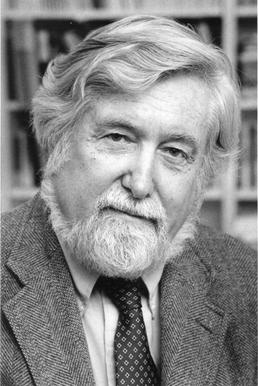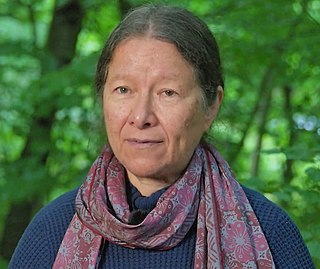Related Research Articles

The University of California (UC) is a public land-grant research university system in the U.S. state of California. The system is composed of its ten campuses at Berkeley, Davis, Irvine, Los Angeles, Merced, Riverside, San Diego, San Francisco, Santa Barbara, and Santa Cruz, along with numerous research centers and academic abroad centers. The system is the state's land-grant university. Major publications generally rank most UC campuses as being among the best universities in the world. Seven of the campuses, Berkeley, Davis, Santa Cruz, Irvine, Los Angeles, Santa Barbara, and San Diego are considered Public Ivies, making California the state with the most universities in the nation to hold the title. UC campuses have large numbers of distinguished faculty in almost every academic discipline, with UC faculty and researchers having won 71 Nobel Prizes as of 2021.

The University of California, Santa Cruz is a public land-grant research university in Santa Cruz, California. It is one of the ten campuses in the University of California system. Located on Monterey Bay, on the edge of the coastal community of Santa Cruz, the campus lies on 2,001 acres (810 ha) of rolling, forested hills overlooking the Pacific Ocean. In Fall 2022, its ten residential colleges enroll some 17,500 undergraduate and 2,000 graduate students.

Clifford James Geertz was an American anthropologist who is remembered mostly for his strong support for and influence on the practice of symbolic anthropology and who was considered "for three decades... the single most influential cultural anthropologist in the United States." He served until his death as professor emeritus at the Institute for Advanced Study, Princeton.

Michael Douglas Coe was an American archaeologist, anthropologist, epigrapher, and author. He is known for his research on pre-Columbian Mesoamerica, particularly the Maya, and was among the foremost Mayanists of the late twentieth century. He specialised in comparative studies of ancient tropical forest civilizations, such as those of Central America and Southeast Asia. He held the chair of Charles J. MacCurdy Professor of Anthropology, Emeritus, Yale University, and was curator emeritus of the Anthropology collection in the Peabody Museum of Natural History, where he had been curator from 1968 to 1994.
Saba Mahmood (1961–2018) was professor of anthropology at the University of California, Berkeley. At Berkeley, she was also affiliated with the Center for Middle Eastern Studies, Institute for South Asia Studies, and the Program in Critical Theory. Her scholarly work straddled debates in anthropology and political theory, with a focus on Muslim majority societies of the Middle East and South Asia. Mahmood made major theoretical contributions to rethinking the relationship between ethics and politics, religion and secularism, freedom and submission, and reason and embodiment. Influenced by the work of Talal Asad, she wrote on issues of gender, religious politics, secularism, and Muslim and non-Muslim relations in the Middle East.

Nicholas B. Dirks is an American academic and the former Chancellor of the University of California, Berkeley. Dirks is the author of numerous books on South Asian history and culture, primarily concerned with the impact of British colonial rule. In June 2020, Dirks was named president and CEO of The New York Academy of Sciences.

Karl Andreas Taube is an American Mesoamericanist, Mayanist, iconographer and ethnohistorian, known for his publications and research into the pre-Columbian cultures of Mesoamerica and the American Southwest. As of 2009 he holds a position as Professor of Anthropology at the College of Humanities, Arts, and Social Sciences, University of California, Riverside. In 2008 he was named the College of Humanities, Arts, and Social Sciences distinguished lecturer.
Narinder Singh Kapany was an Indian physicist best known for his work on fiber optics. He is credited with inventing fiber optics, and is considered the 'Father of Fiber Optics'. Fortune named him one of seven 'Unsung Heroes of the 20th century' for his Nobel Prize-deserving invention. He was awarded India's second highest civilian award the Padma Vibhushan posthumously in 2021. He served as an Indian Ordnance Factories Service (IOFS) officer. He was also offered the post of Scientific Adviser to the Defence Minister of India, by the first Prime Minister of India, Jawaharlal Nehru.
Sherry Beth Ortner is an American cultural anthropologist and has been a Distinguished Professor of Anthropology at UCLA since 2004.

Mark Juergensmeyer is an American sociologist and scholar specialized in global studies and religious studies, and a writer best known for his studies on comparative religion, religious violence, and global religion. He is Distinguished Professor Emeritus of Sociology and Global Studies at the University of California, Santa Barbara, and William F. Podlich Distinguished Fellow and Professor of Religious Studies at Claremont McKenna College.
Ross Hassig is an American historical anthropologist specializing in Mesoamerican studies, particularly the Aztec culture. His focus is often on the description of practical infrastructure in Mesoamerican societies. He is the author of several influential books, among them: Time, History, and Belief in Aztec and Colonial Mexico; Aztec Warfare: Imperial Expansion and Political Control; and Trade, Tribute, and Transportation: The Sixteenth-Century Political Economy of the Valley of Mexico.
Wallace Chafe was an American linguist. He was Professor Emeritus and research professor at The University of California, Santa Barbara.
Sally Price, born Sally Hamlin in Boston, is an American anthropologist, best known for her studies of so-called "primitive art" and its place in the imaginaire of Western viewers.

James Clifford is an interdisciplinary scholar whose work combines perspectives from history, literature, history of science, and anthropology.
Gail Hershatter is an American historian of Modern China who holds the Distinguished Professor of History chair at the University of California, Santa Cruz. She previously taught in the history department at Williams College.

Anna Lowenhaupt Tsing is an American anthropologist. She is a professor in the Anthropology Department at the University of California, Santa Cruz. In 2018, she was awarded the Huxley Memorial Medal of the Royal Anthropological Institute.
Donald Lawrence Brenneis is an American anthropologist and professor of anthropology at the University of California, Santa Cruz. Brenneis served as president of the American Anthropological Association (2002–2003). He became co-editor of the Annual Review of Anthropology as of 2010. He has served two terms as director of the American Council of Learned Societies.

Felicia Rice is an American book artist, typographer, letterpress printer, fine art publisher, and educator. She lectures and exhibits internationally, and her books can be found in collections from Special Collections, Cecil H. Green Library to the Whitney Museum of American Art to the Bodleian Library. Work from the Press is included in exhibitions and collections both nationally and internationally, and has been the recipient of numerous awards and grants.
Patricia Zavella is an anthropologist and professor at the University of California, Santa Cruz in the Latin American and Latino Studies department. She has spent a career advancing Latina and Chicana feminism through her scholarship, teaching, and activism. She was president of the Association of Latina and Latino Anthropologists and has served on the executive board of the American Anthropological Association. In 2016, Zavella received the American Anthropological Association's award from the Committee on Gender Equity in Anthropology to recognize her career studying gender discrimination. The awards committee said Zavella’s career accomplishments advancing the status of women, and especially Latina and Chicana women have been exceptional. She has made critical contributions to understanding how gender, race, nation, and class intersect in specific contexts through her scholarship, teaching, advocacy, and mentorship. Zavella’s research focuses on migration, gender and health in Latina/o communities, Latino families in transition, feminist studies, and ethnographic research methods. She has worked on many collaborative projects, including an ongoing partnership with Xóchitl Castañeda where she wrote four articles some were in English and others in Spanish. The Society for the Anthropology of North America awarded Zavella the Distinguished Career Achievement in the Critical Study of North America Award in the year 2010. She has published many books including, most recently, "I'm Neither Here Nor There, Mexicans"Quotidian Struggles with Migration and Poverty, which focuses on working class Mexican Americans struggle for agency and identity in Santa Cruz County.
Mayfair Yang or Yang Meihui is a Taiwanese-American cultural anthropologist of China. Her research focuses on modernity, religion and secularism, state formation, religious environmentalism, China Studies, gender studies, postcolonial studies, and media studies.
References
- ↑ "Campus Directory - UC Santa Cruz".
- ↑ "Rally and Walkout at UC Santa Cruz to Defend the Future of Public Education".
- ↑ "Kerr Hall at UC Santa Cruz remains occupied by protesters" . Retrieved 2018-05-28.
- ↑ "41 protesters arrested after students seize UC Berkeley building". The Mercury News. 2009-11-20. Retrieved 2018-05-28.